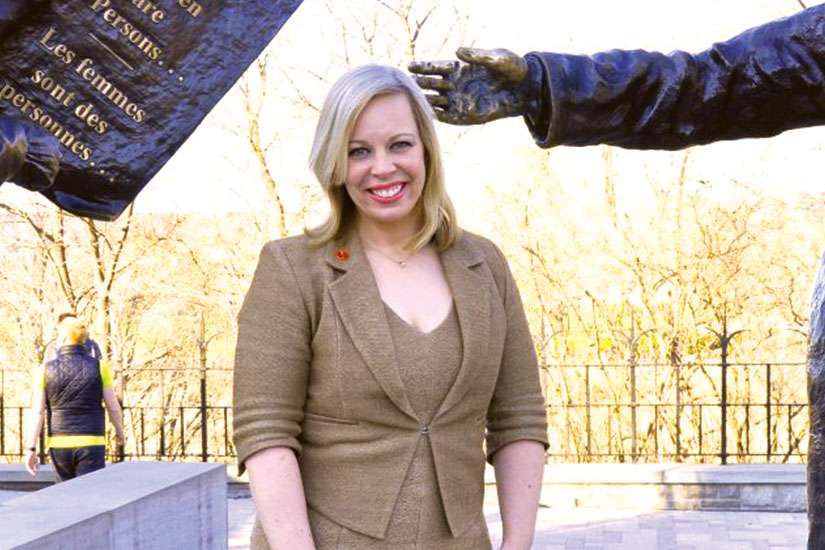With no new legislation to replace Criminal Code provisions struck down by the Supreme Court in 2015, the country was left with an uneven patchwork of provincial laws and medical college regulations to govern how people may access doctor-assisted suicide. The result is a system that grants unequal access and safeguards across the country.
Safeguards proposed in the government’s Bill C-14 legislation — such as having two independent witnesses, two medical practitioners involved in assessing consent and having a waiting period — are not required by the 2015 Supreme Court judgment, said Conservative Senator Denise Batters.
Some jurisdictions, such as Alberta, New Brunswick and Yukon, allow people under the age of 18 to access assisted suicide, she added. Bill C-14 requires the person to be 18 or older.
“I want to have a bill in place as soon as possible,” said Batters, who was part of a Senate committee that recommended amendments to Bill-C14. “I am of the opinion there are certain safeguards this particular bill provides that the Supreme Court of Canada decision does not provide.”
The Senate, which received the Bill on June 1, has been resisting pressure to pass it quickly.
“We are not going to be pushed,” said Conservative Senator Donald Plett.
“We are actually being pressured by the ministers, phoning our Senators to find out where we are on this bill,” said Plett, who believes every Senator deserves a chance to speak on the bill. “I find it unconscionable that they would do this.
“This is the most important legislation I will ever deal with in my life. Many of us have had sleepless nights over the fact we will be required to vote on this.”
He dismissed the notion of a legal vacuum. “The Carter ruling will be the law of the land until it will be what this bill says. I’m okay if it takes an extra week.”
Every Senator is to be given a chance to put forward amendments. Independent Senator Pierre-Hugues Boisvenu warned having so many Senators putting forward myriad amendments may get the debate “lost in the weeds.” Other Senators raised concerns the Senate could lose credibility by forwarding too many amendments.
The Senate’s Legal and Constitutional Affairs Committee previously sent 10 proposed amendments to the House of Commons. They included conscience rights protection and improvements in safeguards for vulnerable people. But they were never considered by the House, and similar amendments by Conservative MPs were defeated.
An evangelical Christian, Plett said he recently met with Cardinal Thomas Collins who was happy to see the evangelical and Catholic communities working together to ensure conscience protection.
Opposition to the bill does not fall along partisan lines. Plett noted Liberal Senator George Baker recently said that in 40 years as a Parliamentarian he has never seen a bill opposed by so many people for so many different reasons.
Many Senators say the bill is too restrictive and therefore not constitutional. Others believe additional safeguards are required. The Senate has heard from constitutional experts who are divided on the constitutional legitimacy of the bill, with some arguing it meets constitutional requirements, others arguing it does not.
But even many Senators who oppose euthanasia and assisted suicide in principle, such as Batters, believe a flawed Bill C-14 is better than leaving assisted suicide to a patchwork of regulatory regimes devised by provinces and territories. For one thing, Batters wants Bill C-14 limited to the terminally ill, to mirror Quebec euthanasia legislation.
“End of life should be a requirement,” she said, noting polls show this is something Canadians want. “Only nine jurisdictions in the world allow some form of assisted suicide or euthanasia,” she said. “Six require terminal illness or end of life and that includes Quebec and the few American states that allow it.
“It’s something Canadians expect.”


